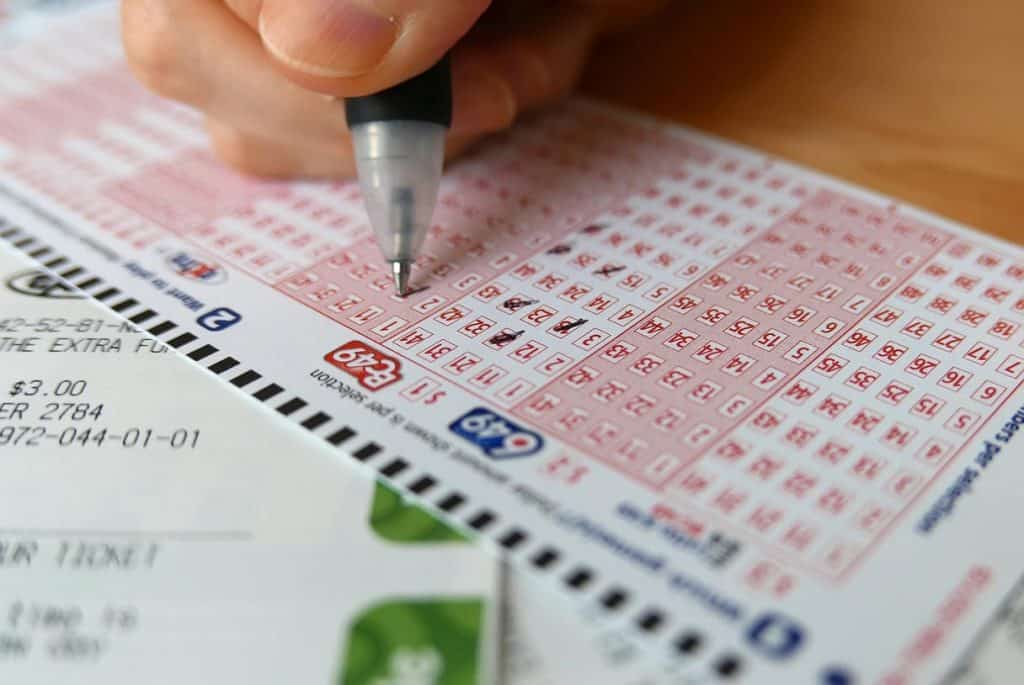Although gambling has grown in popularity and acceptance in the twenty-first century, many Christians are reluctant to embrace the trend. Gambling’s history of association with organized crime, loan-sharking, and other illicit activity paints a picture of vice and sin that, as Christians, we rightly seek to avoid.
But for generations, state-run lottery drawings have been promoted as a safe and legal alternative to other forms of gambling. Without the stigma of seedy casinos and back-alley gambling rooms, are Christians free to participate in government-sponsored lotteries?
Christians should avoid all forms of gambling, including lotteries. Although lotteries present less danger than illegal forms of gambling, they still expose Christians to financial and spiritual risk.

Lotteries: A Safe Alternative?
If you have read our prior examination of gambling, then you are familiar with the ways in which gambling leads to addiction, oppression, poverty, and poor stewardship.
Rather than repeat those points in this present writing, we examine whether or not lotteries are different enough from other forms of gambling to resolve these shortcomings.
Lotteries and Addiction
A lottery drawing is devoid of the glitz and ambiance of a posh casino and the thrill of watching the dice tumble. And the plastic, numbered balls twirling about the lottery machine certainly cannot match the excitement of a fourth-quarter comeback on the gridiron.
Yet, lotteries are still as addictive as any other form of gambling—perhaps even more so—because the tickets are not expensive to purchase or difficult to acquire.
Perhaps you’ve passed by the scratch-off ticket vending machine at your local grocery store. If so, have you ever observed someone feeding $20s into the slot one after the other, or standing outside the door vigorously scratching at a stack of tickets? If so, you’ve seen the addictive power of lottery tickets in action.
And what does the lottery addict do with the scratcher that yields a $500 windfall? Chances are, most—if not all—of the winnings will be used to purchase more lottery tickets.
Lottery and Oppression
Gamblers who frequent casinos and illegal clubs might rack up debts that they are obligated to repay under the threat of violence. And while lottery agencies might not offer loans or employ hired thugs the way crime rings do, a lottery addict will have no trouble seeking high-priced financing (such as payday loans) elsewhere.
Even if a lottery player doesn’t borrow money to feed his or her habit, they are likely putting themselves in a position of living paycheck-to-paycheck. For players on a fixed income, this could mean waiting weeks to buy decent food, medicine, or clothing, and lead to reliance on charities and public assistance.
Lotteries and Poverty
For the gambler, oppression is synonymous with poverty, and it is difficult to overcome.
No one can serve two masters. Either you will hate the one and love the other, or you will be devoted to the one and despise the other. You cannot serve both God and money. – Matthew 6:24
Jesus warns us that we cannot serve two masters, and this warning is not just for the rich. Those who lack, but endlessly chase a windfall, and those who are weighed down by the burden of debt are just as enslaved to wealth as those who hoard it in excess.
Lottery and Stewardship
Finally, as we covered in our previous piece on gambling, choosing to use our limited resources on gambling does not honor God’s purposes for our money. This is true even if we are exercising restraint in our purchases.
Some lotteries might entice prospective players to participate by suggesting that a government-run lottery somehow provides a benefit to society. In this author’s home state, lotteries are advertised as ‘benefiting older residents.’
As Christians, we should care for older citizens, particularly the poor and the widows, as Jesus commands.
The trouble with using this reasoning to justify purchasing lottery tickets is that God gave this command directly to His people, in order that we might directly engage with and provide for the vulnerable members of our society. God invites us to care for the poor and the widows not only through our donations but through our relationships with them.
When we rationalize playing the lottery because a portion of our funds benefits a certain class of people, we make the grave mistake of outsourcing our responsibility as Christians. Additionally, by ‘donating’ to seniors through the purchase of lottery tickets, we diminish the value of our gifts. After all, that dollar that we spend on a lottery ticket has to fund winnings, advertisement, staff, and equipment.
What, then, is left for our neighbor in need?
A Better Way to Help
If we want to be faithful stewards of our financial resources, while also honoring God’s presence within us, we can do so much better than spending money on lottery tickets.
We can help seniors directly, and see our dollars go farther to help the needy. We can volunteer our time and organize church activities and share God’s love with the seniors in our communities.
The possibilities—for both our time and our money—are endless when we allow Jesus, not money, to be our master.





